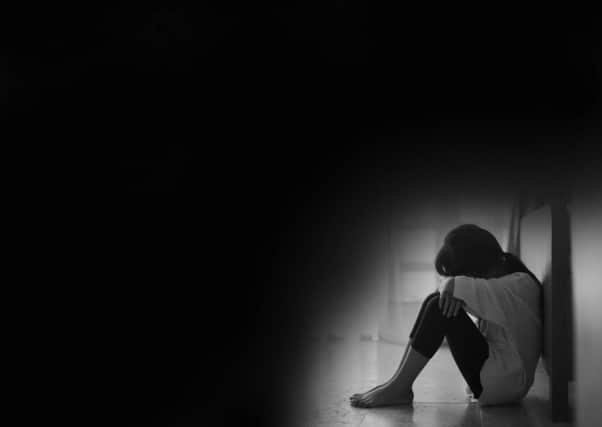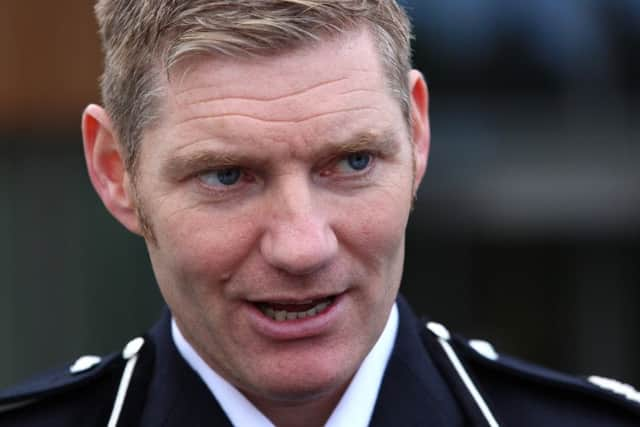Lack of evidence results in no charge in majority of rape cases


Analysis of the way forces investigate serious sexual assaults shows that in the year to March, only a fifth (21 per cent) of the completed inquiries resulted in a charge or summons being issued.
Sixty-six per cent of the completed probes suffered from “evidential difficulties”, meaning police did not have enough evidence for a charge or summons to be issued by prosecutors. This could be because the victim does not support police action and withdraws their allegations.
Advertisement
Hide AdAdvertisement
Hide AdIn one in twenty of the cases, a prosecution was either prevented or deemed to be not in the public interest.


According to Her Majesty’s Inspectorate of Constabulary, possible reasons for this include the offender, victim or a key witness dying, a suspect being under age or being too ill, or the prosecution time limit expiring.
It is only recently that such breakdowns have been issued for the outcome of a police rape investigations. Previously all that was revealed was whether a charge, caution or penalty notice was issued.
Katie Russell, trustee and co-founder of the charity Support After Rape & Sexual Violence Leeds, said the number of investigations encountering “evidential difficulties” did not mean that large numbers of false allegations were being made.
Advertisement
Hide AdAdvertisement
Hide AdShe said: “The CPS has looked into the issue of false allegations around rape offences and concluded that they are very rare.”
Ms Russell said she believed many of the cases recorded as sexual offences against children were historic cases dating back a number of years, particularly as a result of the Metropolitan Police’s high-profile Operation Yewtree.
She said: “There are some particular difficulties with evidence so many years after the event. Sexual offences are by their nature ‘behind closed doors’ types of offence. There is often not a third party witness, it is often only the complainant and the accused involved.
“There are challenges around investigating sexual offences which contribute to why prosecution rates are so low. Steps have been taken to improve the situation, and it is improving, but more needs to be done.”
Advertisement
Hide AdAdvertisement
Hide AdThe police outcome figures were based on data provided to the Home Office from 33 forces, which did not include South Yorkshire and West Yorkshire.
They are contained within digests setting out the current picture on the way rape offences are investigated and prosecuted locally.
The reports for all police force areas in England and Wales were produced by Her Majesty’s Inspectorate of Constabulary on behalf of the Rape Monitoring Group, which includes representatives from the Government, police, prosecution services and academia.
Nationwide, the number of rape and sexual abuse offences reported to police rose from late 2012, when revelations of the scale of offending by Leeds-born presenter Jimmy Savile emerged and the Metropolitan Police’s Operation Yewtree was launched.
Advertisement
Hide AdAdvertisement
Hide AdAs a result, the number of rape cases referred by police to the Crown Prosecution Service rose nationally from 5,404 in the 2012/13 financial year to 6,159.
Prior to this, the number of referrals fell sharply between 2010 and 2012, prompting fears many cases had been wrongly discontinued.
Yorkshire’s biggest police force, West Yorkshire Police, saw a sharper rise in referrals than the national average from 2012/13 onwards, rising from 177 over 12 months to 315 in 2014/15.
The number of rape charges in the county rose from 124 to 221 during the same period, according to the CPS, while the number of completed prosecutions rose from 137 to 226.
Advertisement
Hide AdAdvertisement
Hide AdSouth Yorkshire, North Yorkshire and the Humberside police force area also saw big rises in the number of rape charges and prosecutions from 2012/13, after registering a fall in the two previous years.
In its report, HMIC said that convictions of the guilty were “extremely important outcomes, but convictions are not the only important outcomes for victims of rape”.
It added: “Following the disclosure of Jimmy Savile’s offending history, hundreds of survivors contacted police and agencies across the country to report sexual offences that Savile and other high-profile individuals had committed against them.
“Many of those survivors may have contacted police with a low expectation of a judicial outcome but, for the first time, many were provided with an opportunity to discuss the offending and they were listened to and believed. Some were then able to access vital support services.”
Advertisement
Hide AdAdvertisement
Hide AdRuss Foster, Assistant Chief Constable for West Yorkshire Police, said a recent increase in reported rape offences seen by his force “is due to a combination of factors, primarily because of the way crimes are recorded due to greater adherence to the National Crime Recording Standard, which accounts for 90 per cent of the rise”.
“The remaining 10 per cent is an actual rise in reporting, partly because of increased confidence but also as we see more cyber enabled crimes, where websites and chat rooms provide a platform for contact between offender and victim.”
Minister for Preventing Abuse and Exploitation Karen Bradley said: “Rape and sexual violence are devastating crimes. That is why the Government has made protecting women and girls from violence and supporting victims a priority.
“I welcome the fact that more victims of rape and sexual offences are coming forward and reporting these crimes to the police.
Advertisement
Hide AdAdvertisement
Hide Ad“Victims must have the confidence to report, knowing that they will get the support they need to go through the criminal justice process and that everything will be done to bring offenders to justice.
“We are working closely with the police to continue to improve their response to rape and sexual assault.”